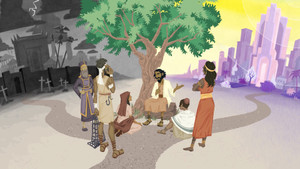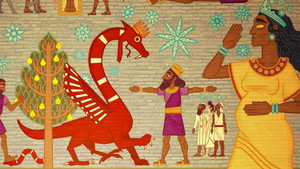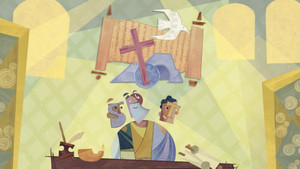

Character
Most of us think of characters in the Bible as either sinners or saints, good or bad. At least that’s how Bible stories are presented to children. In this video, we’ll explore the ways biblical authors present characters as more complex and morally compromised than we usually imagine.
Downloads
Next Episode

Episode 7
Setting
How to Read the Bible

Episode 1
What Is the Bible?

Episode 2
The Story of the Bible

Episode 3
Literary Styles

Episode 4
Ancient Jewish Meditation Literature

Episode 5
Plot

Episode 6
Character

Episode 7
Setting

Episode 8
Design Patterns

Episode 9
The Gospel

Episode 10
The Parables of Jesus

Episode 11
Poetry

Episode 12
Poetic Metaphor

Episode 13
The Book of Psalms

Episode 14
The Prophets

Episode 15
The Books of Solomon

Episode 16
Apocalyptic Literature

Episode 17
Biblical Law

Episode 18
New Testament Letters: Historical Context

Episode 19
New Testament Letters: Literary Context